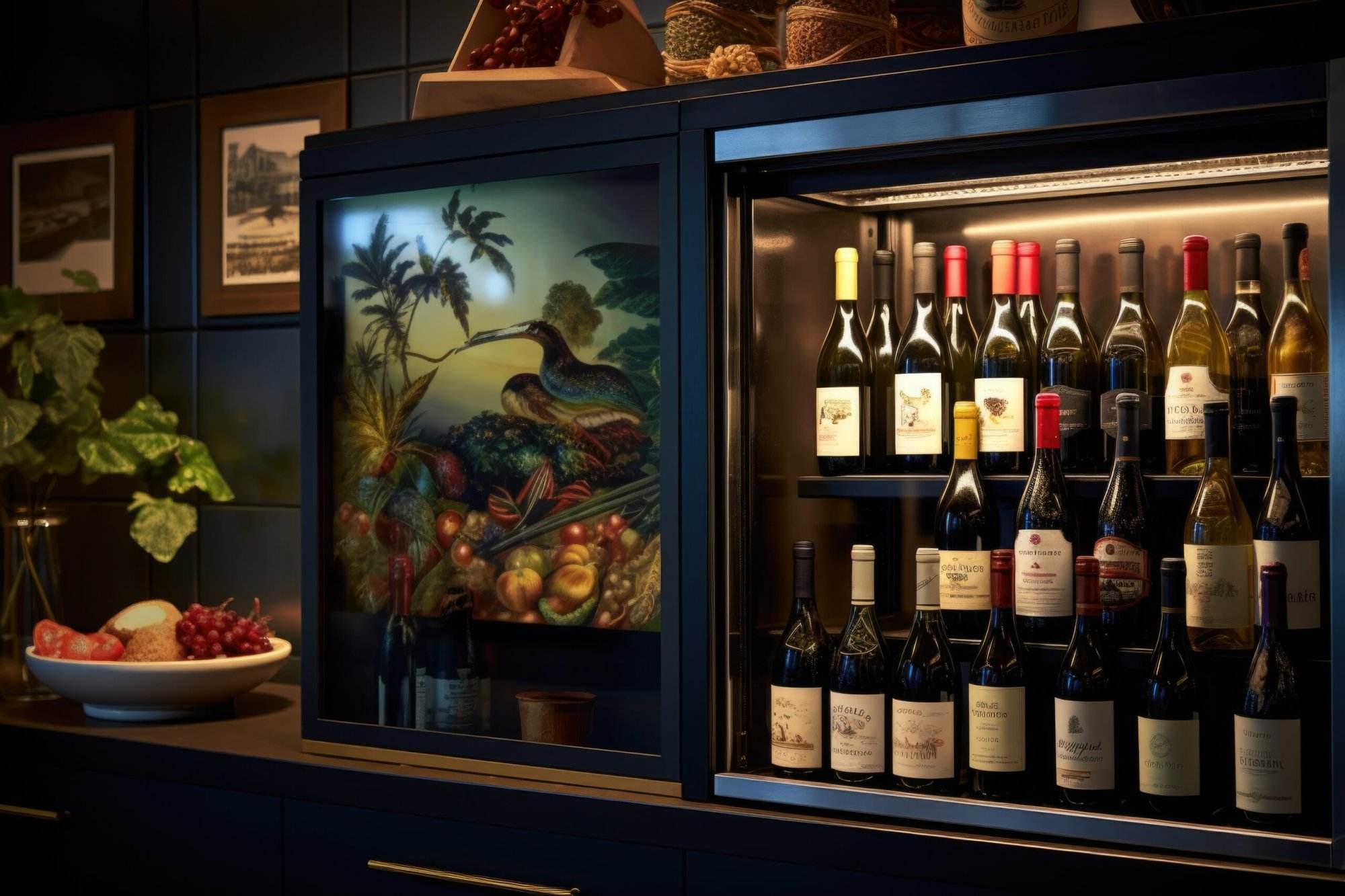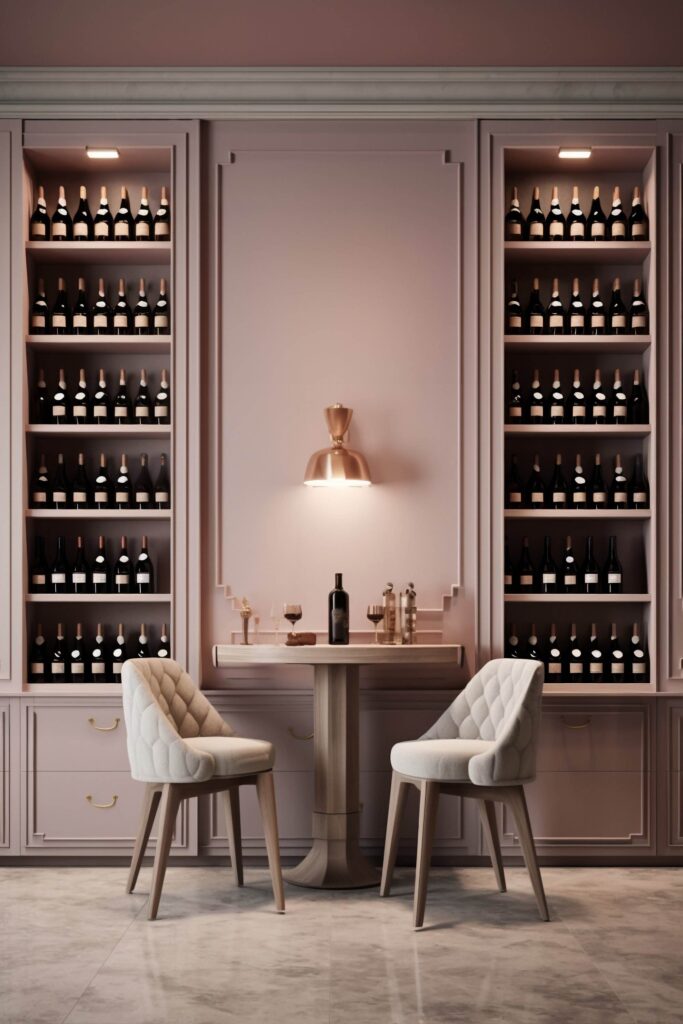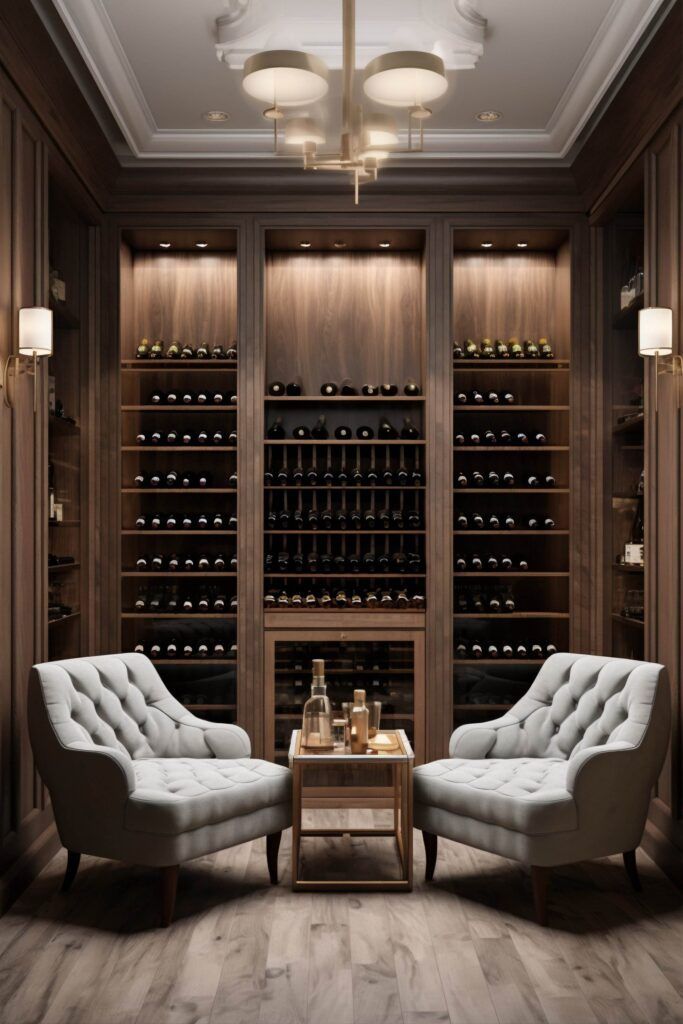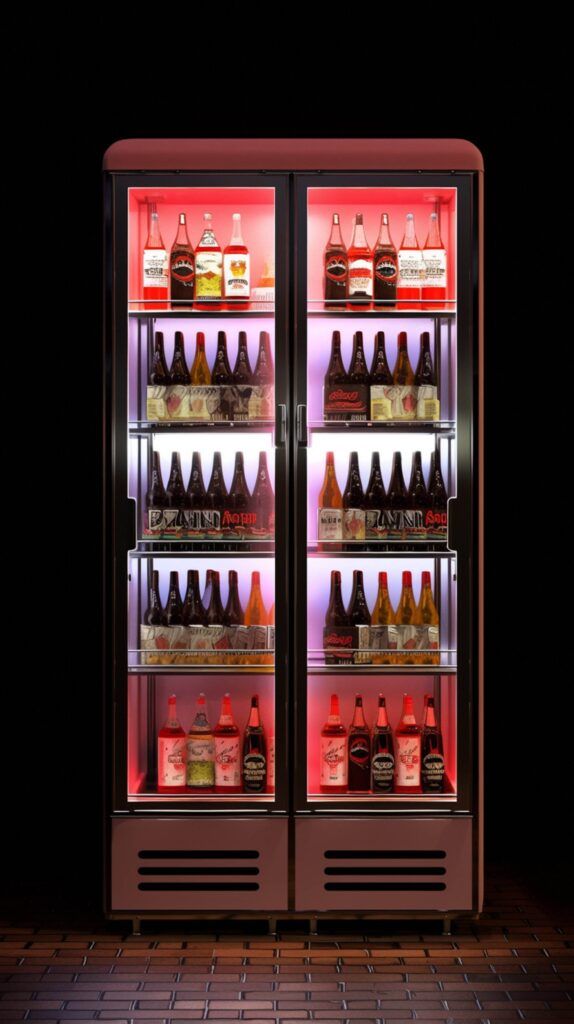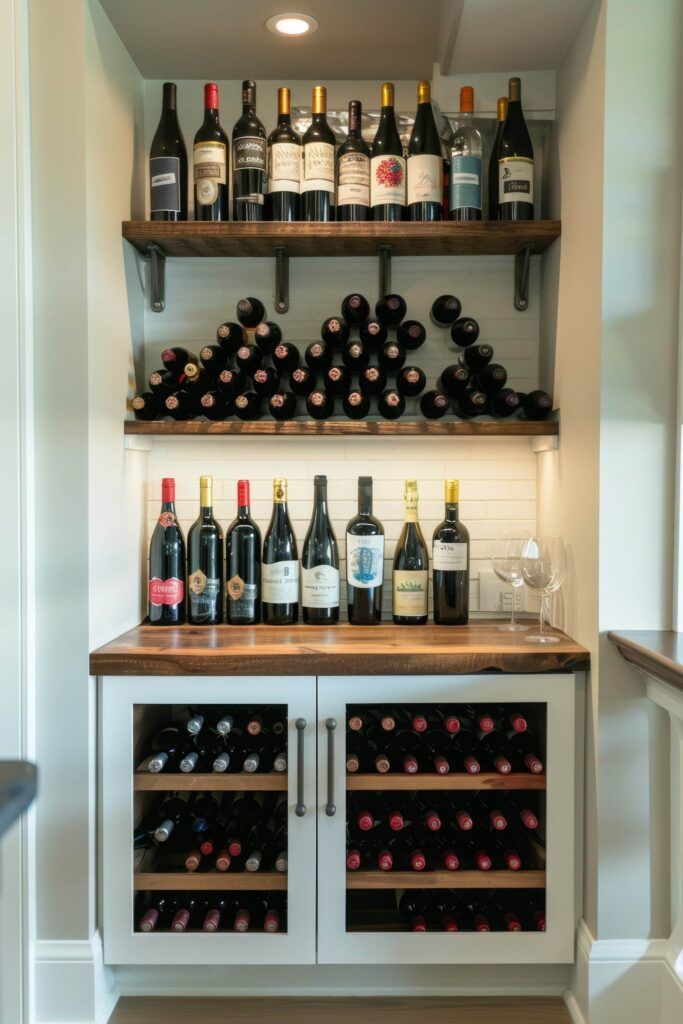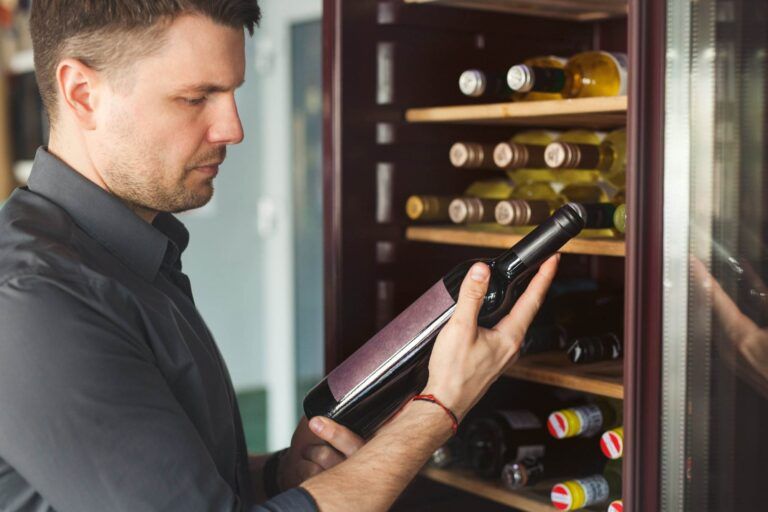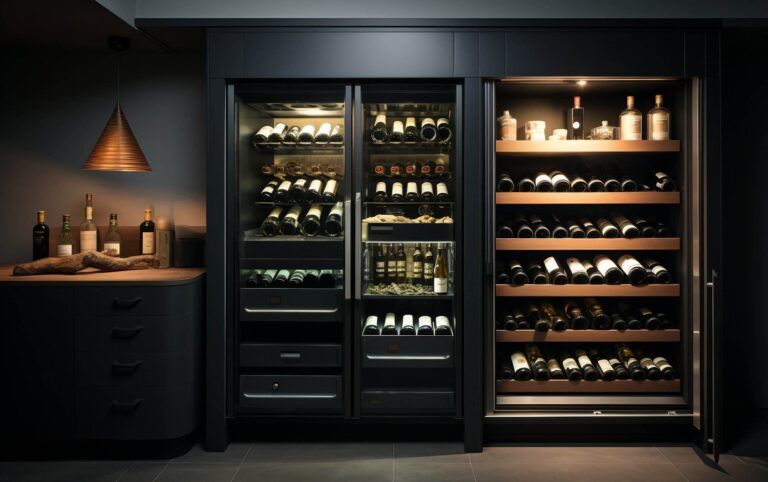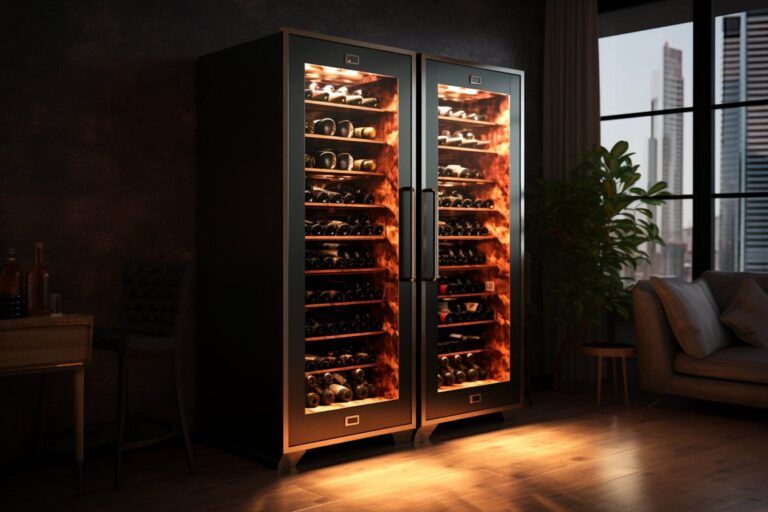Wine Refrigerators vs. Wine Cellars at Wine Hardware: Which is the Better Investment?
Wine Refrigerators vs. Wine Cellars: Overview
Wine Refrigerators and Wine Cellars are both popular options for wine enthusiasts looking to store their collection. Wine Refrigerators offer convenience and easy access to your wines, while Wine Cellars provide optimal conditions for long-term storage. Both have their advantages and considerations, so it’s important to weigh factors such as temperature control, humidity levels, costs, capacity, space requirements, and maintenance when deciding which option is the better investment.
Wine Refrigerators as a Convenient Option
Wine Refrigerators offer wine enthusiasts a convenient and accessible option for storing their collection. With the ability to set and control temperature settings, wine can be chilled to the perfect serving temperature. This makes it easy to enjoy a glass of wine at any time without the need for extensive planning. Wine Refrigerators also come in various sizes, allowing for customization based on personal needs and available space.
Wine Cellars for Long-Term Storage
Wine Cellars provide an ideal environment for long-term wine storage. These storage spaces are designed to maintain a consistent temperature and humidity level, which is crucial for the proper aging and preservation of wine. With insulation and airtight seals, wine cellars create a stable and controlled environment that allows wine to develop complex flavors and aromas over time. The absence of light and minimal vibrations also contribute to the optimal conditions for aging wine. Wine Hardware offers a range of wine cellars suitable for different storage requirements.
Factors to Consider
When deciding between a wine refrigerator and a wine cellar at Wine Hardware, there are several factors to consider. One important factor is temperature control. Wine refrigerators offer precise temperature settings, allowing you to store different types of wine at their recommended temperatures. On the other hand, wine cellars provide a consistent temperature throughout, which is crucial for long-term storage. Additionally, humidity levels play a role. Wine refrigerators do not typically have humidity control, while wine cellars provide a controlled and stable humidity environment.
Temperature Control in Wine Refrigerators
Wine refrigerators offer precise temperature control, allowing wine enthusiasts to store their collection at their ideal temperatures. Different types of wine require specific temperature ranges to preserve their flavors and aromas. With a wine refrigerator from Wine Hardware, you can set the temperature according to your preference, ensuring that each bottle is stored at the perfect temperature. This feature is especially important for those who enjoy a variety of wines and want to maintain their quality and taste over time.
Humidity Levels in Wine Cellars
Humidity levels in wine cellars play a crucial role in preserving the quality of wine. A humidity range of 50-80% is recommended to keep corks moist and prevent them from drying out. This helps maintain a proper seal and prevents oxygen from entering the bottles, which could lead to spoilage. Wine cellars typically have built-in humidity control systems to ensure the ideal conditions for long-term storage. Proper humidity levels are essential for aging wine and preserving its flavors and aromas.
Cost Analysis
Wine refrigerators offer a more affordable option compared to wine cellars. The initial investment for a wine refrigerator is significantly lower than the cost of building and equipping a wine cellar. However, it is important to consider the long-term costs associated with operating a wine refrigerator, such as electricity usage and potential repairs. On the other hand, wine cellars require a higher upfront investment, but they have lower long-term costs as they consume less energy and require minimal maintenance. Ultimately, the cost analysis will depend on individual budget and needs.
Initial Investment for Wine Refrigerators
When considering the initial investment for a wine refrigerator at Wine Hardware, it is important to note that the cost is significantly lower compared to building and equipping a wine cellar. Wine refrigerators offer an affordable option for those looking to store their wine collection at home. The price range for wine refrigerators can vary depending on the size, features, and brand, but overall it is a more cost-effective choice.
Long-Term Costs of Wine Cellars
Long-term costs of wine cellars can be significantly higher compared to wine refrigerators. Building and maintaining a wine cellar requires extensive construction and renovation, which can be quite costly. Additionally, wine cellars need proper insulation, ventilation, and climate control systems to ensure the wines are stored at ideal conditions. These ongoing expenses, along with potential repairs and maintenance, make wine cellars a more expensive investment in the long run.
Capacity and Space Requirements
Wine refrigerators offer a variety of storage capacities, ranging from small units that can hold a dozen bottles to larger models that accommodate over a hundred bottles. These appliances are designed to make the most efficient use of space, with adjustable shelves and racks to accommodate different bottle sizes. Wine cellars, on the other hand, require a significant amount of space since they are built-in structures. The capacity of a wine cellar depends on the available space and can be customized to hold a large collection of bottles.
Storage Capacity of Wine Refrigerators
Wine refrigerators come in various sizes to accommodate different storage needs. They offer a range of storage capacities, from small units that can hold a dozen bottles to larger models that can store over a hundred bottles. These appliances are designed with adjustable shelves and racks, allowing for efficient use of space and the ability to accommodate bottles of different sizes. Whether you have a small collection or a larger one, there is a wine refrigerator available to meet your storage requirements.
Space Considerations for Wine Cellars
When considering a wine cellar, space is a crucial factor to take into account. Wine cellars require a dedicated room or area that is specifically designed for storing and aging wine. This space needs to be properly insulated and climate-controlled to maintain the ideal temperature and humidity for wine storage. Additionally, wine cellars often require ventilation systems and specialized racking to maximize storage capacity and organization. It’s important to carefully assess the available space and ensure that it can accommodate a wine cellar before making the investment.
Maintenance and Upkeep
Maintenance of Wine Refrigerators
Regular maintenance of wine refrigerators is relatively simple. It involves cleaning the interior and exterior regularly, checking and replacing the filters as needed, and ensuring proper ventilation. The temperature settings should be monitored and adjusted when necessary. Additionally, it is important to keep the shelves and racks organized to minimize any potential damage to the bottles.
Upkeep of Wine Cellars
Maintaining wine cellars requires more extensive upkeep. This includes regular inspections of insulation and seals to prevent air leaks. The cooling system and humidity control mechanisms should be monitored and serviced as needed. Wine bottles need to be regularly checked for any signs of cork deterioration or leakage. It is also necessary to rotate and reorganize the bottles periodically to ensure the proper aging process.
Conclusion
The decision between wine refrigerators and wine cellars ultimately depends on an individual’s needs and preferences. Wine refrigerators offer convenience and ease of use, making them a suitable choice for those who want to store a moderate number of bottles at an easily accessible temperature. On the other hand, wine cellars are ideal for long-term storage and aging, providing the necessary conditions for wines to develop complexity and flavors over time. Consider factors such as temperature control, humidity levels, cost, capacity, space requirements, and maintenance when making the best investment decision for your wine collection.
Pros and Cons Comparison of Wine Refrigerators and Wine Cellars
Wine Refrigerators:
Pros:
- Convenient and easy to use
- Suitable for storing a moderate number of bottles
- Quick access to wine at the desired temperature
- Can be placed in various locations, including kitchens and dining areas
Cons:
- Limited capacity compared to wine cellars
- May not provide optimal conditions for long-term aging and development of wines
- Temperature fluctuations in certain models can affect wine quality
Wine Cellars:
Pros:
- Ideal for long-term storage and aging of wines
- Allows wines to develop complexity and flavors over time
- Provides consistent temperature and humidity levels
- Can accommodate a larger number of bottles
Cons:
- Requires dedicated space in the home
- Higher initial investment and long-term costs
- Requires professional installation and maintenance
- Less convenient access to wine compared to wine refrigerators
Making the Best Investment Decision.
When it comes to making the best investment decision for your wine collection, it is important to consider your specific needs and preferences. Assess factors such as the quantity of wine you plan to store, the desired aging process, available space in your home, and your budget. Also, think about the convenience of quick access versus long-term storage and the level of maintenance you are willing to undertake. By carefully evaluating these factors, you can make an informed choice between a wine refrigerator or a wine cellar that suits your requirements and enhances your wine experience.

